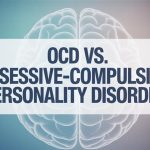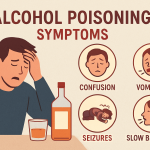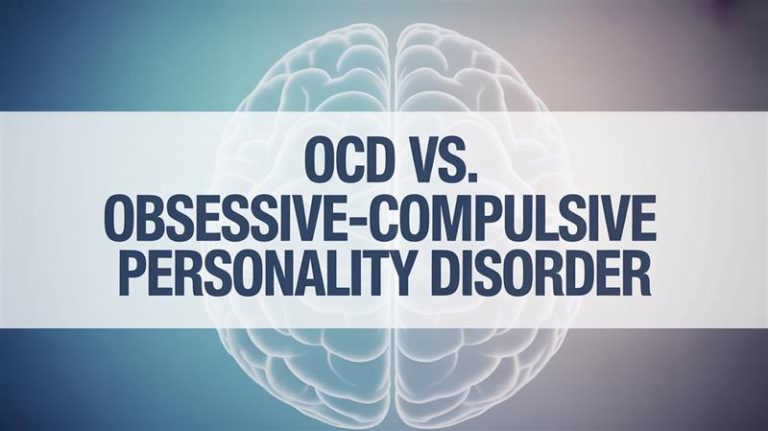Mental health in the elderly is often overlooked; however, it serves as a critical aspect of their overall well-being. So how many seniors have or do experience emotional and psychological issues? Many, actually, and this greatly affects the quality of life. Various changes that occur while aging might spark stress, depression, and anxiety. These stressors might arise as a result of poor health, loneliness, or even bereavement.
Tackling the issues present in the mind of the senior can be better tackled with a clearer understanding of the causes and the symptoms and devising step-by-step approaches. Along with these, family members (and caregivers) play a key role in overcoming all the challenges involved.
Understanding Mental Health Challenges in the Senior
Advancing age doesn’t solely lead to various mental health issues. However, the ongoing changes in their immediate environment often render them vulnerable.
People around them become increasingly worried about life, giving rise to depression, anxiety, and loss of cognition. These issues in people, or rather the general population, arise due to a combination of factors, in particular long-term illnesses, loneliness, and other various triggering endeavors.
Unlike younger individuals, many senior citizens may find it a bit more challenging to express their concerns clearly. Healthcare professionals often highlight that treating the elderly can be quite complex, largely because of the misconceptions surrounding mental health issues treatments.
Stating aging with depression, people tend to emphasize depression among the aged population and therefore neglect depression symptoms such as tiredness, loss of memory, or increased appetite. In doing so, they lose the chance to gain a diagnosis and necessary medications, causing gloomy situations among the seniors.
Once these problems are recognized, caregivers and medical practitioners can do what is necessary to tackle the challenges in the elderly population, providing them with the desired attention and convenience to avoid depression and anxiety.
Common Causes of Mental Health Issues in Seniors
Physical Health Problems and Chronic Illnesses
To begin with, a healthy body gives the foundation for a sound mind, especially in seniors. They might also be impacted by heart disease, diabetes, arthritis, and other disorders. Chronic pain or continuous aches, limitation of movements, etc. bring discontent, depression, and despair to life.

Additionally, it must be mentioned that chronic diseases have specific medicines that can be harsh on mental health. Some people unfortunately suffer from these side effects, and it initiates more mental health issues, fatigue, confusion, or mood swings.
Chronic conditions need a strategy and more importantly, their cognition needs an impact strategy to help improve the mental well-being of the senior. However, more help is needed to promote the physical and mental health of seniors to improve the health and life of the seniors.
Social Isolation and Loneliness
Especially for the seniors, being physically well is just as important to our mental state. Long-term diseases, including heart disease, diabetes, and arthritis, may significantly impact emotional wellness. Many of these debilitating conditions are associated with chronic pain, discomfort, and limited mobility, which lead to frustration, sadness, helplessness, and overall deterioration in quality of life.
Additionally, medications used to treat chronic health conditions may in turn affect mental health. Certain medications can also cause fatigue, confusion, or mood changes, worsening mental health problems, for example.
It all contributes to maintaining mental well-being in seniors—controlling chronic conditions and dealing with their emotions. So we have to give utmost importance to physical health as well as mental health to the seniors for a healthy and better quality of life.
100% Confidential Support is Available 24/7
No matter what you’re going through, you’re not alone. Our dedicated team is here to provide a safe, judgment-free space where you can talk openly and honestly. Whether you need emotional support, resources, or just someone to listen.
We’re here for you—completely confidential and always respectful of your privacy. Call us today!
Recognizing Symptoms of Mental Health Disorders in Older Adults
Determining whether an older adult has a mental health disorder can be tough because the signs can look a lot like typical aging. Still, there are some well-established indicators that an older adult is having mental health problems. These are some of the big ones:
- Feeling sad or “down” most of the time
- Losing interest in things they used to enjoy
- Lying awake at night, unable to sleep, or sleeping way more than is normal for them
- Feeling tired and achy but unable to say why
- Acting like they can’t remember simple things they used to know and can’t seem to concentrate
- Getting mad or sad over little things that wouldn’t have bothered them as much if they were in a better mental state
Deland Treatment Solutions
Battling with Drug and Alcohol Addition? Remember, you are not alone and we are here to help you!
Strategies to Improve Mental Health in the Senior
Importance of Physical Activity and a Balanced Diet
It is good for the body and also from the mental level to do some work on physically fit. Exercise releases endorphins, which help reduce stress, improve mood, and reduce depression symptoms.
- Encouraging seniors to do mild workouts like walking, yoga, or swimming is strongly suggested, and it helps make a vast distinction of their lifestyles.
- Besides exercising, having a well-balanced diet also helps preserve mental well-being.
- Eating healthy food such as fruits, vegetables, and omega-3 fatty acids is beneficial for the brain and helps relieve anxiety and depression. Making the effort to make these dietary decisions could vastly enhance mental health.
Benefits of Therapy and Support Groups
The truth is that therapy can be incredibly helpful for senior people who are struggling with mental health issues. Cognitive-behavioral therapy (CBT) and similar counseling strategies can also help seniors better cope with anxiety, depression, and grief.
Support groups provide community and a sense of belonging in addition to talking to a therapist. When older adults talk with others who are going through similar issues, it can help eliminate the feelings of isolation that might exist while providing emotional comfort.
How Families Can Provide Support
Family members play an important role in maintaining seniors’ mental health. To ensure their emotional well-being, it is important to create an environment with a focused safety net.
These activities, such as quality time, listening without judgment, and being willing to have conversations about mental well-being, can make a huge difference.
More ways family members can assist seniors are by getting them into a routine, getting them into activities or hobbies they like, and seeing a professional when symptoms persist because there may be some mental health issues involved. By offering compassionate care and demonstrating unwavering support, caregivers empower older adults to confront their obstacles with resilience.
Promoting Well-Being and Quality of Life for Seniors
Mental health issues among older adults need to be brought into the light of day through a mix of awareness, understanding, and care. Only by understanding how different their battles are from others, trying to diagnose symptoms early on, and providing adequate help can a family or caregiver improve the life of a senior person to a great degree, leading them toward a healthier, fuller life.

Prioritizing mental well-being not only ensures the dignity, independence, and quality of life of senior individuals as they age but also contributes to their overall happiness and contentment.
Consider reaching out to organizations like Deland Treatment Solutions for expert guidance and support. By taking these steps, we can empower seniors to live fulfilling lives, free from the burdens of mental health struggles.





















